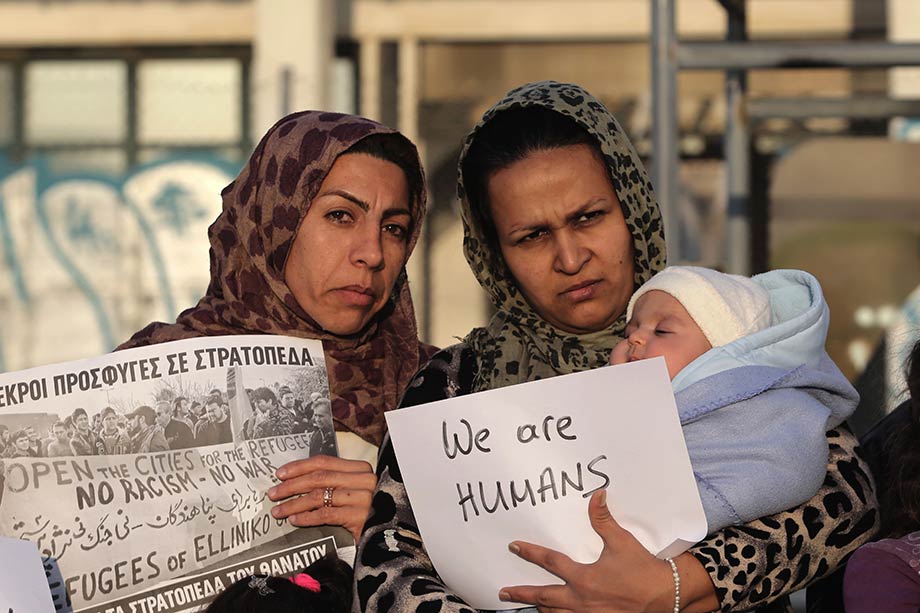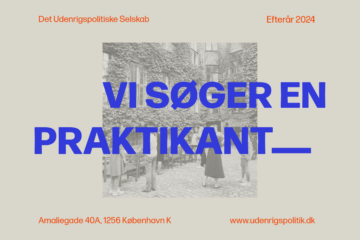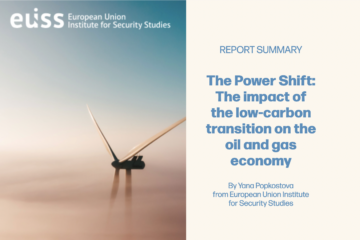Drowning Mothers
[:en]By Sine Plambech (DIIS), 3 July 2017
A recent article by Sine Plambech, a researcher at the Danish Institute for International Studies, provides a gender perspective on migration and the deathly journeys particularly for women. This article aims at increasing awareness and the need for further research on “border-crossing” dangers for men and women, but especially why women have higher risks of dying on these journeys. Plambech suggests that by conducting detailed research on the individuals that perish as result from attempts to migrate to Europe (or the global North in general) we might be able to have a deeper understanding about the forces and motivations that push people to risk their lives, lives that could be saved.
 Plambech opens her article by talking about Aylan Kurdi, the Syrian boy who gave the world the graphic and deathly image of the refugee crisis. She also argues that although the number of migrating men still outweighs that of women, women have higher risks of dying, mainly while trying to save their children. Furthermore, she talks about the research done by Pickering and Cochrane on more examples of border-crossing fatal journeys across the world, including sailing the Mediterranean to the EU, crossing the Mexican desert to the USA, and sailing the South Pacific Ocean from Indonesia to Australia. These case studies reinforce the urgent need of understanding the deeper roots of migration and how to prevent these deaths, that seem to be greater for women.
Plambech opens her article by talking about Aylan Kurdi, the Syrian boy who gave the world the graphic and deathly image of the refugee crisis. She also argues that although the number of migrating men still outweighs that of women, women have higher risks of dying, mainly while trying to save their children. Furthermore, she talks about the research done by Pickering and Cochrane on more examples of border-crossing fatal journeys across the world, including sailing the Mediterranean to the EU, crossing the Mexican desert to the USA, and sailing the South Pacific Ocean from Indonesia to Australia. These case studies reinforce the urgent need of understanding the deeper roots of migration and how to prevent these deaths, that seem to be greater for women.
In addition to using Pickering and Cochrane´s research to support her argument, Plambech also uses her own anthropological documentary “Becky´s Journey,” where the voice of a Nigerian woman recounts her failed attempts and journey trying to migrate to Europe. Becky describes how pregnant women often undertook the journey and many of them died while giving birth in the Sahara or other points in the process of getting to Europe. Through this narrative of the motives and dangers that women expose themselves to escape violence and poverty in their home countries, it is clear, that a deeper understanding on migration and its actors is of greater relevance than restrictive border controls when it comes to saving lives.
Read more here
[:da]By Sine Plambech (DIIS), 3 July 2017
A recent article by Sine Plambech, a researcher at the Danish Institute for International Studies, provides a gender perspective on migration and the deathly journeys particularly for women. This article aims at increasing awareness and the need for further research on “border-crossing” dangers for men and women, but especially why women have higher risks of dying on these journeys. Plambech suggests that by conducting detailed research on the individuals that perish as result from attempts to migrate to Europe (or the global North in general) we might be able to have a deeper understanding about the forces and motivations that push people to risk their lives, lives that could be saved.
 Plambech opens her article by talking about Aylan Kurdi, the Syrian boy who gave the world the graphic and deathly image of the refugee crisis. She also argues that although the number of migrating men still outweighs that of women, women have higher risks of dying, mainly while trying to save their children. Furthermore, she talks about the research done by Pickering and Cochrane on more examples of border-crossing fatal journeys across the world, including sailing the Mediterranean to the EU, crossing the Mexican desert to the USA, and sailing the South Pacific Ocean from Indonesia to Australia. These case studies reinforce the urgent need of understanding the deeper roots of migration and how to prevent these deaths, that seem to be greater for women.
Plambech opens her article by talking about Aylan Kurdi, the Syrian boy who gave the world the graphic and deathly image of the refugee crisis. She also argues that although the number of migrating men still outweighs that of women, women have higher risks of dying, mainly while trying to save their children. Furthermore, she talks about the research done by Pickering and Cochrane on more examples of border-crossing fatal journeys across the world, including sailing the Mediterranean to the EU, crossing the Mexican desert to the USA, and sailing the South Pacific Ocean from Indonesia to Australia. These case studies reinforce the urgent need of understanding the deeper roots of migration and how to prevent these deaths, that seem to be greater for women.
In addition to using Pickering and Cochrane´s research to support her argument, Plambech also uses her own anthropological documentary “Becky´s Journey,” where the voice of a Nigerian woman recounts her failed attempts and journey trying to migrate to Europe. Becky describes how pregnant women often undertook the journey and many of them died while giving birth in the Sahara or other points in the process of getting to Europe. Through this narrative of the motives and dangers that women expose themselves to escape violence and poverty in their home countries, it is clear, that a deeper understanding on migration and its actors is of greater relevance than restrictive border controls when it comes to saving lives.
Read more here
[:]


